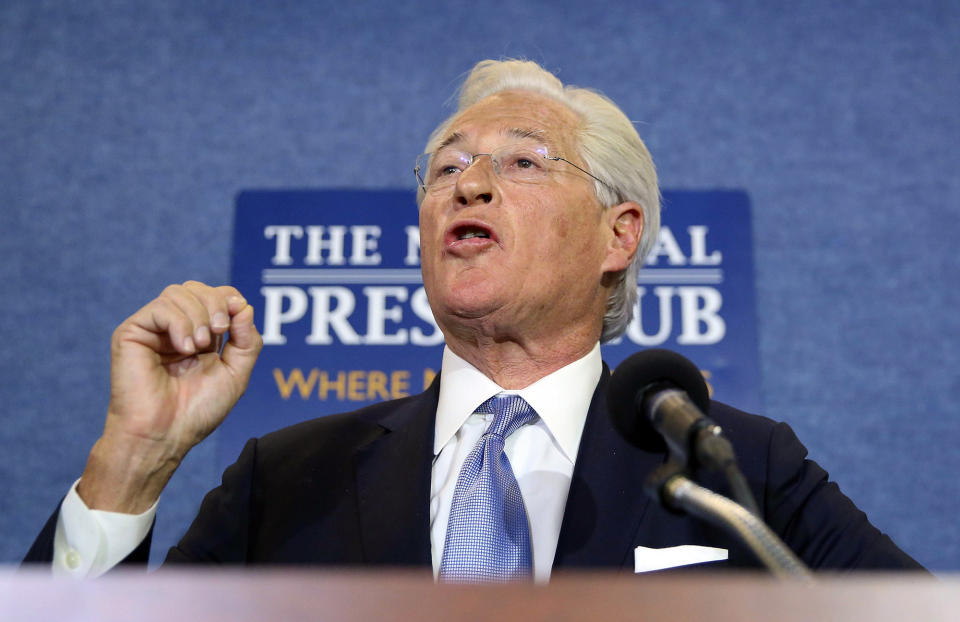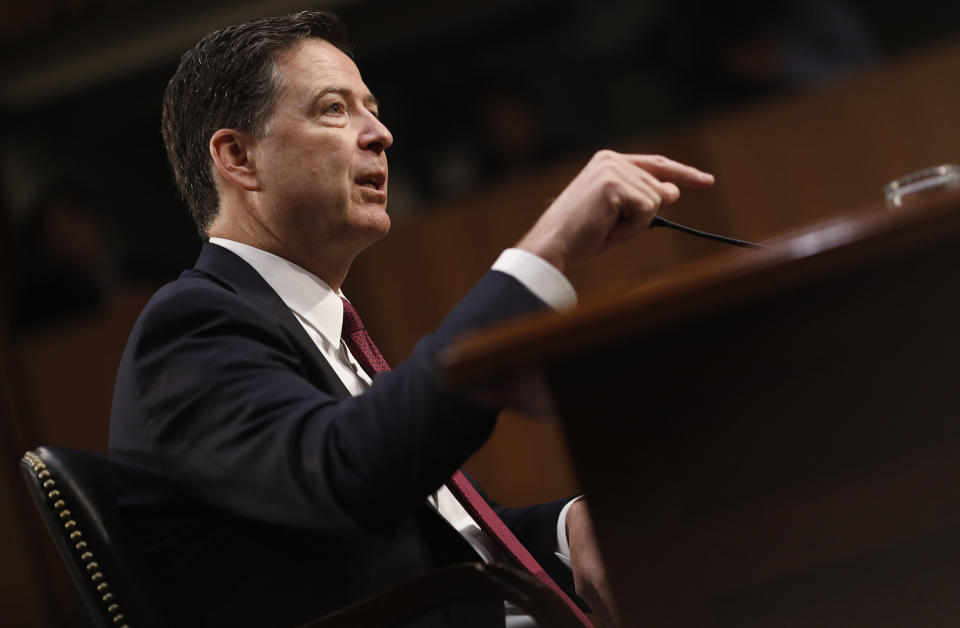From the Comey camp, ‘laughter’ at idea he broke the law by leaking
A friend and confidant of James Comey told Yahoo News Friday that the proper response to the charge that the former FBI director broke the law by leaking a personal memo to the press was “laughter.”
Benjamin Wittes, editor in chief of the Lawfare blog and senior fellow at the Brookings Institution, told Yahoo News during an interview Friday that the suggestion by President Trump’s lawyer Marc Kasowitz that Comey should be investigated did not hold merit.
Related slideshow: ‘Lies’ to ‘Lordy’: How the world’s front pages covered the Comey testimony >>>
“Any complaint on what Jim testified yesterday, in my opinion, would be frivolous for the following reason,” said Wittes in an interview with Yahoo News Deputy Editor Daniel Klaidman. “First of all, Comey was very clear that the memo that he wrote was intentionally written in unclassified form so that it would not be bound up in classification rules. So if the claim is that he’s admitted to leaking classified information, that’s simply factually false.”

During his testimony Thursday, Comey said that he had leaked a personal memo about conversations with Trump to the press via a friend, Daniel Richman. A refrain from Trump supporters, surrogates and staffers in the wake of the fired FBI head’s testimony is that Comey should be charged for releasing the memo. The timeline of events offered by Kasowitz, however, is questionable.
“Comey’s description of the document is that it was a personal sort of memo to file,” said Wittes, ”and by the way, there is no general law that says you are bound to protect unclassified material, so the real question here is not legal — and by the way, executive privilege assumes that there is some proceeding in which somebody is trying to compel you to produce something. It’s not about whether you as an individual are entitled to disclose your own notes of a conversation voluntarily, that’s just not what it’s about.
“The real issue is whether the president has a reasonable expectation of confidentiality when he fires somebody and then lies about the circumstances in which he did that, and that strikes me as a matter in which to ask that question is also to answer it,” said Wittes. “The proper answer to Mr. Kasowitz’s complaint is laughter.

“There’s nothing, in my opinion, unethical, let alone illegal or inappropriate about what Jim reported that he and Dan [Richman] did,” added Wittes.
Wittes said he doesn’t know why Comey leaked a memo to the media through Richman, but suspected it was because he was “relying on his friends in a time when he was quite busy and quite overwhelmed” and there might have been some reluctance about jumping on a phone with a reporter days after he was fired. Comey said during his testimony that he was reluctant to share the memo with the press directly because with the media camped out in his driveway it would be like “feeding seagulls at the beach.”
Related slideshow: Comey and cocktails: People in bars and restaurants watch ex-FBI director’s testimony >>>
Wittes’ relationship with Comey was highlighted last month when he went to the New York Times with a story about how his friend had attempted to hide in the curtains during a White House event to avoid being recognized by the president. At that time, Comey had concerns that Trump was attempting to build a personal relationship that he felt was improper.
Read more from Yahoo News:



